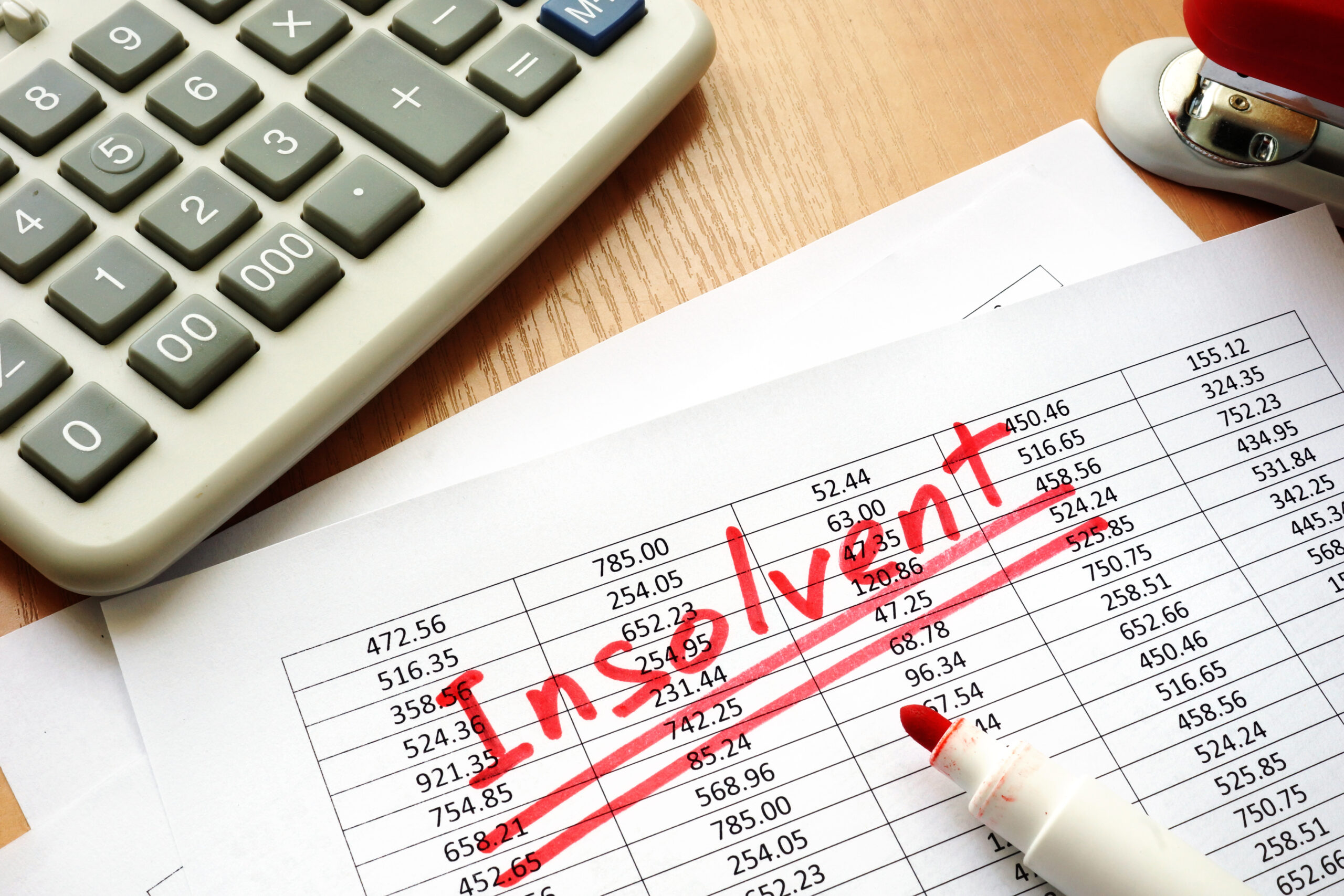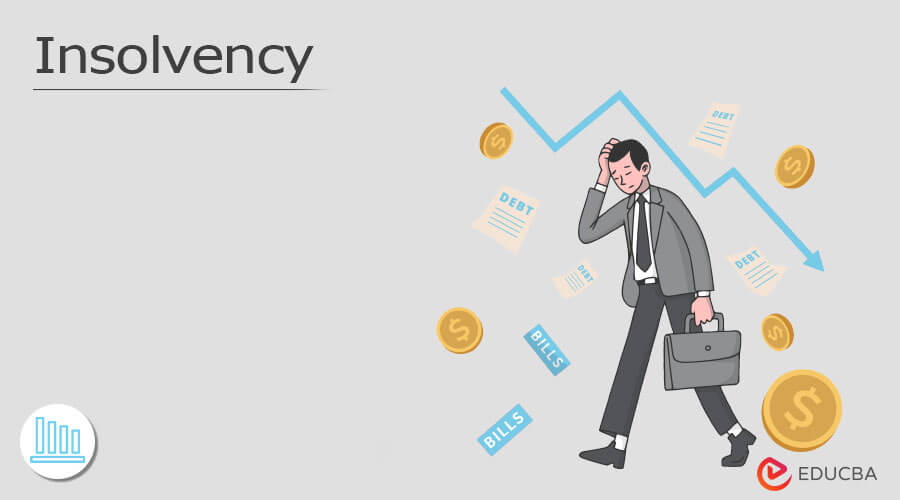The Greatest Guide To Insolvency Practitioner
The Greatest Guide To Insolvency Practitioner
Blog Article
Our Insolvency Practitioner PDFs
Table of ContentsThe 10-Minute Rule for Insolvency PractitionerThe Best Guide To Insolvency PractitionerThe Facts About Insolvency Practitioner UncoveredNot known Facts About Insolvency PractitionerThe Best Guide To Insolvency PractitionerInsolvency Practitioner - The FactsTop Guidelines Of Insolvency PractitionerThings about Insolvency PractitionerWhat Does Insolvency Practitioner Mean?
This can happen for a variety of factors, including poor financial management, unanticipated costs, or a change in the market. If a firm is bankrupt, it might be forced to fold or liquidate assets to pay financial institutions. This can have a significant influence on business, employees, and shareholders.
3 Easy Facts About Insolvency Practitioner Shown
Other reasons for insolvency include fraud, mismanagement, and unanticipated costs. Bankruptcy can likewise lead to job losses and the closure of businesses.
This can have significant effects for the business, its stakeholders, financial institutions and the economy. The firm may be compelled to market properties, lay off personnel or also close down. This can have a ripple effect on the neighborhood neighborhood and the economic climate as a whole. Creditors might be omitted of pocket and the firm's investors might see their financial investment vanish.
Personal bankruptcy is the procedure whereby a firm is wound up and its possessions are offered off to pay financial institutions. This is normally the last hope, as it can have a very unfavorable effect on the company's track record. Receivership takes place when a business is unable to pay its financial debts and is placed under the control of an external administrator.
The smart Trick of Insolvency Practitioner That Nobody is Talking About
Voluntary management is similar to receivership, however it is launched by the supervisors of the business as opposed to the creditors - Insolvency Practitioner. This alternative is frequently made use of when a company is dealing with economic difficulties yet there is still hope that it can be transformed around. Business bankruptcy is a complex and major issue that can have significant effects for organizations of all dimensions
With the right aid, you can ensure that your organization has the most effective chance of weathering this hard time.
The 3-Minute Rule for Insolvency Practitioner
Whatever your factor for closing your service, there are several factors to consider you need to address prior to 'closing the doors'. There's also a great deal you can do to make the process less stressful and get far better results. Closing down your organization is not just concerning meeting the practical and legal needs.
Deal with your staff members As an employer, you need to keep an eye on and provide assistance to your staff members during this stressful time. Understand any kind of possible health and wellness issues they might experience due to: job insecuritytransitioning through the sale of the businesschange in proprietors. You can: There are broadly 2 situations in which you would voluntarily shut your business.
You likewise: do not want to, or can not, market the businesshave no-one to take it over. You may be closing your company because: it's not covering its expenses and running costsyou can not maintain the operating costs while attempting to sell it.
Not known Incorrect Statements About Insolvency Practitioner
There are lots of things you need to deal with prior to closing your business. Your accountant, solicitor or business consultant will certainly be able to assist you with this.

You must settle all tax obligation concerns for your organization, also if right here it's no longer trading. This includes your responsibilities relating to payment of: fringe advantages taxpay-as-you-go (PAYG)superannuationemployment termination.
Little Known Questions About Insolvency Practitioner.
Insolvency takes place when your company can not pay its debts, which can result in your organization closing down. Various bankruptcy treatments apply to individuals and firms.
If you attempt to take care of it yourself, you'll require to connect with every financial institution individually to try to discuss normal repayment quantities. Insolvency or personal bankruptcy consultants can: assistance you through the processhelp you comprehend your optionsnegotiate with your lenders in your place. They hold specific permits and credentials in this specialist area.
Excitement About Insolvency Practitioner

Individual bankruptcy for single traders and people within partnerships Individual bankruptcy treatments use to: Prior to starting a personal insolvency procedure, it's important to comprehend the: influence of the consequenceshow long the effect will certainly be., also understood as a Component IX agreement, allows you, or the assigned administrator, to work out with your lenders to pay a percent of the consolidated debts over a period of time to your manager, rather than trying to continue making repayments to each financial institution.
Firm insolvency and liquidation An 'insolvent business' is not able to pay its debts or cover the cost of its overheads. In some circumstances, bankrupt firms might enter into liquidation. Liquidation is when an independent licensed liquidator is appointed to take control over the business and wind up the company service in an organized way.
The Basic Principles Of Insolvency Practitioner
As noted in the Intro, while the report expresses specific preferences with respect to some of the more crucial of these selections, it does not attempt to develop criteria in this complicated location. It may need to be upgraded in the future to take into account advancements in this area.
Sonia Piccinini devoted substantial time and initiative in the prep work Recommended Site of this publication. The views shared in the report are those of the IMF's Legal Division and need to not be credited to the Executive Supervisors or the Management of the IMF. FRANOIS GIANVITI Current experience has actually demonstrated the degree to which the lack of orderly and effective insolvency procedures look at this site can aggravate economic and economic situations.
Report this page